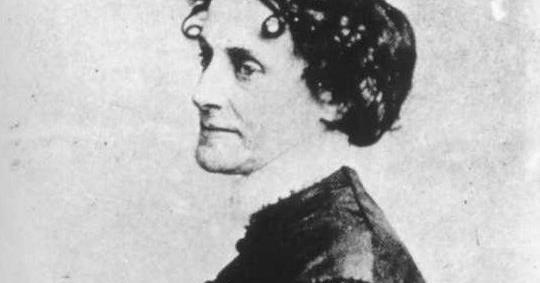Espionage was a well-established entity in the twentieth century. Advancements in wireless telegraphy and the telephone evolved in the early 20th century. In the 19th century, governments had agencies for espionage but espionage itself was at its fledgling stage. The American Civil War had well-known spies on both sides and European nations that were frequently at war had espionage operations that often worked within their diplomatic missions.
American Civil War
Elizabeth van Lew
Elizabeth van Lew, the granddaughter of abolitionist, Hilary Baker was not only a famous spy but ran a large spying organization that passed information to the Union Army. She helped imprisoned Union soldiers escape and gave them information about safe houses. Elizabeth also helped Union sympathizers enter the prison as prison staff to help soldiers escape. She learned about army strengths and troop movements from prisoners and passed information to the commanders of the Union armies. She ran an espionage organization called the Richmond Underground. Ulysses S Grant and General Sharpe, the commander of the Union Army greatly appreciated the expensive espionage efforts of Van Lew. The government gave her $ 15,000 for her efforts after the war and was appointed Post Master General of Richmond for eight years.
Rose O Neal Greenhow
Rose O Neal Greenhow was a staunch secessionist and an influential socialite who lived in Washington DC. She worked for the South though she lived in the North and earned the name, ‘Rebel Rose’. She gained important information from her social circles and passed it to General P.G.T Beauregard of the Confederate Army in the early months of the Civil War. The information she gave helped the Confederate army win the First Battle of Bull Run. She was discovered and imprisoned. She was sent on a diplomatic mission to Europe. Her task was to advocate the Confederate cause to Britain and France. She drowned on her return when her boat capsized while avoiding a gunboat belonging to the Union Army. Her body was recovered and she received a military funeral by the Confederate government.
Europe
Baron August Schluga
Baron August Schluga was a well-known German spy. He served in the Austrian army as an infantry officer and fought in Magenta and Solferino during the 2nd Italian War of Independence. The Baron sent information on the armies of Austria and Prussia to Berlin. He was known to the German Secret Service IIIb as Agent-17. Although he provided valuable information to his employers, he never divulged his sources. He used his connections as an army officer to obtain valuable documents from the Austrian army. He provided valuable information to the Germans during the Franco-Prussian War of 1870 and gave them a document that gave information on the deployment of French troops that helped them defeat the French during World War I.
Espionage began in the 1800s and grew to become a major source of information sharing in the twentieth century. Espionage was often the basis of the history-changing events that took place during wars. Well-known spies of the nineteenth century did commendable work and overcame many hurdles without the advancement of communication technology that was widely used for espionage during the twentieth century.
